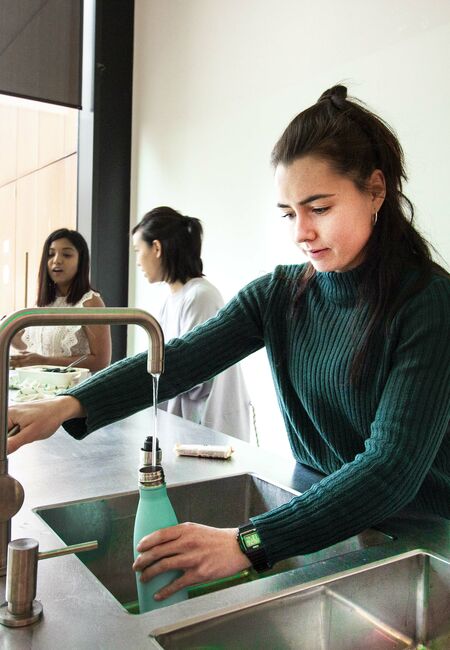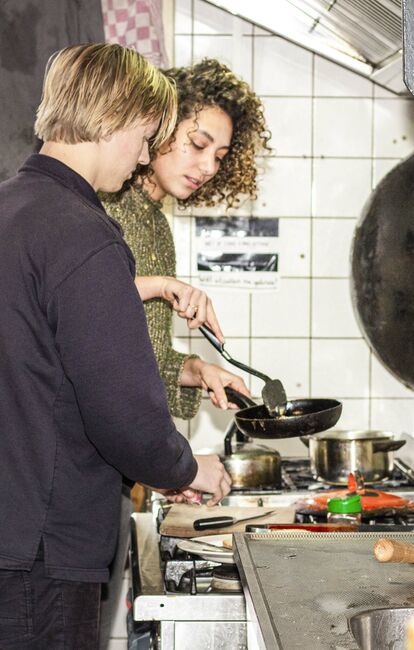How do we help our tenants?
In addition to our efforts to make all our student homes more sustainable, DUWO is also committed to helping tenants live more energy-efficient lives. We know from experience that resident behaviour plays a major role.
Klimaatroute
Due to rising energy costs, DUWO, in collaboration with several municipalities, hired consultancy firms to distribute energy-saving products and advise students on energy conservation. One of the actions will be implemented in cooperation with municipalities and Klimaatroute, a consultancy for sustainability. Thousands of student houses in The Hague, Amstelveen and Leiden will be visited by the energy consultant. Energy-saving products are distributed and installed on site. Energy scans are used in the buildings to ascertain where help is most needed. Klimaatroute offers energy savings tips specific to each building and will install energy-saving products such as radiator foil, heating pipe insulation, water-saving shower heads and weather strips.
The municipality of Delft has entered into a collaboration with DUWO and 015 Duurzaam to help our residents most in need of advice.
Making consumption transparent
By buying the energy for a large proportion of its residents, DUWO has a clear insight into energy consumption. We have seen a significant reduction in recent years. This may be due to high prices and increased concerns about climate change. It could also be the result of using Energy Coaches. To help students understand how much energy it takes to take a shower or run a washing machine, we installed Earn-Es in 120 student houses. Unfortunately, these real-time energy monitors are not suitable for all buildings. DUWO is working hard on ways to ensure that students do not need to wait a year to discover how much energy they have used, but can at least be given a monthly overview.
As a resident, what can you do yourself?
Saving energy should become easier and should be part of your routine. As a student you’re busy enough studying, working and doing fun things. Maybe you have no idea how much energy is actually required to make something work. DUWO is working hard on ways to give you more insight into your personal consumption.
Most gain for the planet can be achieved by paying close attention to how and when you turn on the heating and how much hot water you use. It is worth noting that, although there are compensatory measures for high energy prices for 2023, this will not be the case in 2024. The service costs will be further adjusted in the middle of the following year to reflect the energy prices current at the time. So saving energy is also important for your wallet. As a resident, there’s a lot you can do.



